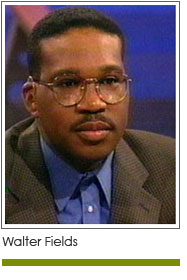 Mississippi Governor Haley Barbour has taken heat for his remarks in an article in The Weekly Standard in which he minimizes the racism of the Jim Crow era in his hometown of Yazoo City, Mississippi. In the article, Barbour offers the “Citizens Council” as a progressive body of pragmatic business leaders who did not tolerate the more brazen and violent Ku Klux Klan. In the article, the governor recalls attending a speech by Dr. Martin Luther King, Jr. at the city’s fairgrounds. Barbour could not remember precisely what the late civil rights leader said that day at the event, suggesting, “We just sat on our cars, watching the girls, talking, doing what boys do. We paid more attention to the girls than to King.” Despite all we know about that era in southern states, Governor Barbour told the article’s author, “I just don’t remember it as being that bad.”
Mississippi Governor Haley Barbour has taken heat for his remarks in an article in The Weekly Standard in which he minimizes the racism of the Jim Crow era in his hometown of Yazoo City, Mississippi. In the article, Barbour offers the “Citizens Council” as a progressive body of pragmatic business leaders who did not tolerate the more brazen and violent Ku Klux Klan. In the article, the governor recalls attending a speech by Dr. Martin Luther King, Jr. at the city’s fairgrounds. Barbour could not remember precisely what the late civil rights leader said that day at the event, suggesting, “We just sat on our cars, watching the girls, talking, doing what boys do. We paid more attention to the girls than to King.” Despite all we know about that era in southern states, Governor Barbour told the article’s author, “I just don’t remember it as being that bad.”
As expected, there has been widespread condemnation of Governor Barbour over his remarks in the article. One thing that has changed in our country is that it is socially unacceptable to express sympathy with the racial demons of the past. Racism is simply not fashionable unless you are a white supremacist living on the fringe. No one wants to carry the Scarlett letter of a racist in 21st century America. Yet, there has been a concerted effort to conceal and deny racism’s mark on our nation. Politicians like Barbour, who cast themselves as modernists and racial moderates, have engaged in a calculated effort to diminish our racial history and, by effect, sever its impact on our nation today. Along with some academics and journalists, and social commentators, these “good white folks” have been willing partners in a conspiracy against memory. Though it has been manifest among the right, it also has its adherents on the left.
Barbour’s reflections are only the latest in a series of calculated comments and practices to hit the delete key on racial memory. It takes the form of “slavery was not about race since Africans sold each other into slavery,” “some slaves were content with their plot and slave masters treated them like servants,” “the Civil War was about state’s rights and not slavery,” “the Confederate flag is a symbol of southern culture and not treason,” and “Blacks were better off during segregation.” An entire industry of historical deception has emerged to whitewash our nation’s immorality and inhumanity on the issue of race, and remarks like those of Governor Barbour serve to erase the memory of Black exploitation and degradation. It is why the Texas schoolbook controversy is an important benchmark of our nation’s state of denial and reflects a broader attempt to make slavery, Jim Crow and present inequities a footnote of American history rather than full chapters in our country’s development.
While the anger at Barbour is understandable, those of us that know better should be aiming at some bigger targets. Every day millions of schoolchildren use history textbooks that are inaccurate and purposely taught lessons that reinforce racial stereotypes and discount the contributions and humanity of Black people. Talk radio hosts and cable television pundits make up their own version of American history that conveniently casts Black Americans as a subject class that are not capable of self-determination and dependent on white largesse. Popular culture casts Blacks as largely violent, amoral, and uneducable, while the film and television industries still present one-dimensional, stereotypical depictions of Black life.
In Barber’s worldview, things were not that bad because he, and many whites, have wiped all the bad stuff from their memories. In his memory, it never happened. The “Citizens Council” was really the “White Citizens Council” and its members worked to preserve white supremacy while wearing suits and ties. The Ku Klux Klan included “good white folks” and its membership often included local law enforcement officials. His memory of a racially benign Mississippi in the Jim Crow era is as offensive as labeling a television show depicting the 1950’s as “Happy Days.” Sadly, even some Blacks have resorted to this distorted view, suggesting that segregation provided economic independence. To a limited extent that is true, but it paled in comparison to the violence and poverty that were the byproducts of Jim Crow. If things were that good, Blacks would not have had the make their exodus from the south during the Great Migration.
Many whites share Barbour’s frame of reference. We cannot have an honest dialogue on race that could lead to a real change in human relations in our country if we simply choose to forget the truth.
Walter Fields is Executive Editor of NorthStarNews.com.

















